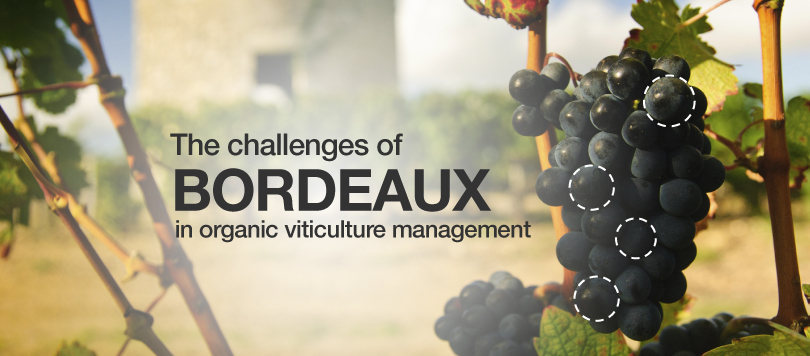
Bordeaux naturally has a maritime climate, which has high annual rainfall and mild temperature. This climatic condition has favored Bordeaux in producing one of the most well-known wines in the world. Nevertheless, Bordeaux’s climate also creates many challenges simultaneously to the vignerons, particularly promoting the growth of mold and vine diseases. This had led to the increasing use of synthetic chemical products, at this time, vine’s yield rose and quality lessened.
Since the 1980s, the Bordeaux vignerons have been seriously and continuously working towards sustainable, organic & biodynamic vineyard management. However, Bordeaux’s certified organic vineyards are still applied sulfur- and copper-based fungicides spray (Yes, organic sprays are allowed in organic practice!) to deal with vine diseases. These products are better than the synthetic alternatives, but it still creates negative effects on the surrounding environment. Besides restricting the using amount of the mentioned products (reduce the limit for copper in the organic vineyard from 6kg/ha/year to 4kg/ha/year taken over a seven-year average, effective as of 2019), scientists are currently looking for healthier solutions.

Collected and composed by Le Thi Xuan Vy - Sommelier at the Warehouse

